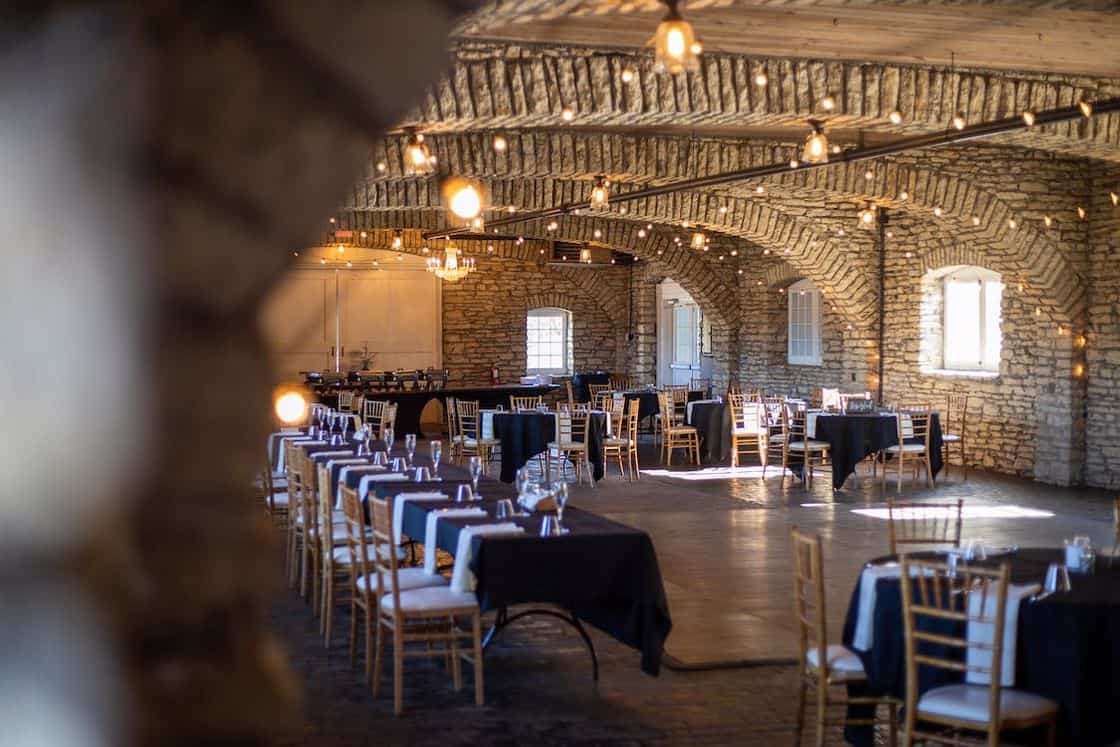Understanding Event Production: Why It Is Essential for Successful Events
Event production plays an important duty fit effective celebrations. It entails mindful preparation, sychronisation, and execution to guarantee every detail lines up with the event's vision. This process not only boosts guest experiences but likewise helps with significant links amongst participants. Comprehending the ins and outs of event production can significantly influence the general end result. What are the crucial elements that contribute to a successful event, and just how can they be properly managed?
The Duty of Event Production in Developing Remarkable Experiences
Although several elements contribute to the success of an event, event production plays a critical function in crafting memorable experiences. This diverse procedure encompasses different aspects, including preparation, logistics, and execution. Effective event production guarantees that every detail straightens with the general vision, developing a seamless circulation that astounds guests. By coordinating timelines, taking care of resources, and managing technological facets, event producers develop a foundation for impactful experiences.Moreover, they curate settings that reverberate with the target market, enhancing engagement and emotional connection. From picking ideal places to incorporating innovative technology, the options made during production substantially affect just how guests view and remember the event. By focusing on top quality and attention to information, event production transforms normal gatherings into amazing moments, leaving lasting impressions. Ultimately, the experienced orchestration of these elements defines the significance of an event, showcasing the relevance of specialist event production in accomplishing extraordinary end results.
Trick Components of Successful Event Production
Reliable event production depends upon a number of vital components that ensure success. Planning and sychronisation develop a strong foundation, while technological setup needs address logistical needs. In addition, executing audience interaction techniques enhances the general experience, making the event unforgettable.
Preparation and Coordination
Preparation and control work as the foundation of successful event production, ensuring that every detail lines up perfectly to produce an unforgettable experience. Efficient planning involves developing a clear vision and purposes, while control involves the precise company of logistics, routines, and resources. A well-defined timeline is essential, directing all stakeholders via crucial milestones and tasks. Interaction plays a pivotal function, cultivating partnership among employee, vendors, and location staff. Regular meetings and updates help to address challenges without delay, making sure that everyone stays aligned with the event goals. Inevitably, an organized technique to preparation and control not just boosts efficiency however also greatly adds to the general success and enjoyment of the event for guests and coordinators alike.
Technical Arrangement Requirements
An effective event depends heavily on its technical configuration needs, which incorporate important parts such as audio-visual equipment, lights, staging, and connection. Audio-visual devices consists of microphones, audio speakers, and projectors, ensuring that discussions and efficiencies are supplied clearly. Proper lights improves the atmosphere and highlights key locations, while organizing offers the needed platform for speakers and performers. Connection, consisting of Wi-Fi and electric accessibility, is crucial for seamless interaction and technology assimilation. Each part should be thoroughly intended and carried out, customized to the event's particular demands. Poor technological configurations can result in disruptions, adversely affecting the general experience for guests, emphasizing the relevance of thorough preparation and attention to information in event production.
Audience Involvement Strategies

The Significance of Planning and Sychronisation
Preparation and coordination are important to the success of any event production. Effective timeline management, resource allotment methods, and group communication characteristics play crucial functions in making sure that all elements come together seamlessly. Without a structured approach to these aspects, events take the chance of encountering delays, budget overruns, and miscommunication among employee.
Reliable Timeline Monitoring


While effective event production usually depends upon creative thinking and implementation, reliable timeline administration continues to be a crucial aspect that can not be neglected. A well-structured timeline serves as the backbone of any kind of event, guaranteeing that each phase is implemented in a prompt manner. It permits the sychronisation of numerous tasks, from venue setup to guest arrivals, while stopping potential bottlenecks. By plainly describing deadlines and obligations, event organizers can preserve focus and adjust to unforeseen difficulties. Additionally, a diligently crafted timeline cultivates interaction among staff member, promoting accountability and cooperation. Inevitably, efficient timeline administration not only enhances functional efficiency yet likewise adds substantially to the overall success and smooth execution of the event, leaving participants with an unforgettable experience.
Resource Allowance Approaches
Efficient source appropriation methods are important for the successful execution of any event. Appropriate planning allows event organizers to recognize and distribute sources, such as funds, workers, and products, in a fashion that makes the most of performance. By assessing the specific needs of each element of the event, organizers can prioritize tasks and assign resources appropriately. Coordination amongst different departments makes sure that all elements, from providing to audiovisual demands, are effectively sustained. This critical approach not only reduces waste however likewise enhances the overall experience for attendees. In addition, expecting potential challenges and having backup strategies in position enables smoother procedures. Inevitably, efficient source appropriation adds substantially to accomplishing event purposes and ensuring a remarkable event.
Team Communication Characteristics
Just how can smooth interaction amongst team participants change the event production process? Effective communication is crucial for collaborating jobs, sharing updates, and dealing with obstacles in real-time. When staff member engage in open dialogue, they can swiftly determine possible concerns and develop options collaboratively, reducing delays and misconceptions. This vibrant fosters a cohesive setting where everyone recognizes their functions and duties, resulting in a much more synchronized effort. In addition, regular check-ins and feedback loops improve responsibility and assurance positioning with the event's purposes. By focusing on interaction approaches, groups can simplify workflows, strengthen morale, and ultimately raise the overall top quality of the event. Successful celebrations depend upon the capability to communicate properly, making it a necessary part of event production.
Enhancing Attendee Interaction Via Imaginative Design
Innovative style plays an important function in improving participant engagement at events, as it promotes an immersive setting that astounds participants' attention. By integrating cutting-edge visuals, interactive aspects, and thematic decor, event planners can produce memorable experiences that resonate with attendees. Thoughtful format designs promote movement and expedition, urging visitors to connect with displays and each other.Incorporating technology, such as augmented reality or live ballot, more improves the experience, permitting real-time responses and communication. In addition, sensory components like illumination, noise, and fragrance can stimulate emotions and produce an extra interesting atmosphere.The usage of storytelling with style assists convey the event's purpose and message, making it more relatable for guests. Eventually, innovative style not only enhances involvement yet also deepens connections amongst individuals, leaving an enduring perception that extends beyond the event itself. This tactical method to layout is crucial for successful gatherings.
Taking care of Logistics for a Smooth Execution
While the enjoyment of an occasion can draw participants in, taking care of logistics is crucial to protect a smooth implementation. This involves carefully working with various aspects, from place selection and design to food catering and transport. Reliable logistics management ensures that all elements align, permitting a smooth circulation from registration to the verdict of the event.Additionally, a clear communication plan among all stakeholders is critical. This includes team, vendors, and volunteers, that need to be educated of their roles and obligations. Preparing for potential obstacles, such as equipment failing or unanticipated climate problems, can further improve the event's success.Creating a comprehensive timeline aids keep the team on course and allows for prompt modifications. Ultimately, well-managed logistics not only help with a satisfying experience for guests but also show the professionalism and reliability of the organizers, contributing to the overall success of the event.

The Effect of Innovation on Event Production
What duty does technology play fit modern-day event production? Technology has actually ended up being a foundation of reliable event production, boosting both preparing and implementation procedures. From advanced enrollment systems to interactive apps, innovation simplifies participant monitoring and boosts engagement. Digital event platforms permit organizers to get to broader audiences, breaking geographical barriers and promoting hybrid gatherings that view website combine in-person and on the internet experiences.Additionally, audiovisual modern technologies, such as high-def screens and stereos, raise the high quality of discussions and efficiencies, making sure an unforgettable experience for guests - event production charlotte. Social media site assimilation enables real-time comments and communication, fostering neighborhood engagement previously, throughout, and after the event. Data analytics tools aid coordinators in checking individual habits and Learn More preferences, making it possible for customized experiences that resonate with diverse audiences. In general, the assimilation of technology in event production not just boosts functional efficiency however likewise enhances participant experiences, ultimately adding to the success of the event
Examining Success: Determining the End Results of Your Event
Success in event production depends upon effective assessment, which includes determining a range of results to assess the overall impact of an event. To achieve this, organizers can employ both qualitative and measurable metrics. Measurable steps may consist of participation figures, ticket sales, and income produced, while qualitative assessments might involve participant complete satisfaction surveys and feedback forms.Additionally, analyzing social media engagement and media insurance coverage can give understandings right into the event's reach and brand influence. Contrasting these metrics against predefined goals aids figure out if the goals were met.Furthermore, post-event debriefs with the planning team can reveal lessons discovered and areas for renovation. By methodically examining these results, event producers can boost future events, guaranteeing continuous development and success. Eventually, an extensive assessment not just highlights accomplishments but additionally notifies strategic choices for subsequent events, fostering a society of excellence in event production.
Regularly Asked Questions
What Credentials Should an Event Producer Have?
Event manufacturers need to possess solid business abilities, imagination, and reliable interaction abilities. A background in job management, budgeting, and arrangement is vital. Pertinent accreditations and experience in varied event types better improve their qualifications.
Exactly How Can I Minimize Event Production Prices Effectively?
To efficiently minimize event production costs, one can simplify vendor choice, discuss agreements, make use of internal resources, focus on necessary components, implement technology for effectiveness, and discover sponsorship opportunities to balance out costs without endangering high quality.
What Are the Typical Difficulties in Event Production?
Usual challenges in event production include budget constraints, logistical coordination, vendor monitoring, time constraints, attendee engagement, technical problems, and unpredicted circumstances - check this site out event production charlotte. Each element can significantly influence the total success and smooth implementation of the event
Just how Do I Choose the Right Venue for My Event?
Selecting the best place includes taking into consideration variables such as area, ability, amenities, and spending plan. In addition, reviewing accessibility and ambiance guarantees the selected room straightens with the event's objectives and boosts the total participant experience.
What Is the Normal Timeline for Preparation an Event?
The common timeline for planning an occasion differs, yet usually consists of phases such as idea development, location choice, vendor sychronisation, promotion, and final prep work, commonly covering numerous months to ensure an effective execution.